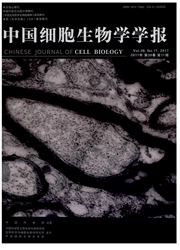

 中文摘要:
中文摘要:
肿瘤干细胞是指肿瘤细胞群体中的未分化细胞,能够自我更新及无限增殖;通常具有正常干细胞样的多潜能性,可以分化产生异质性的肿瘤细胞及组织,对于传统的化疗药物具有耐药性。肿瘤干细胞与正常干细胞有一定的差异,如某些信号通路异常活化、细胞表面表达特异的分子等。针对肿瘤干细胞的这些特性,科学家们提出新的肿瘤治疗策略,即通过设计特异的抗体药物靶向信号通路或者细胞表面分子等,从根源上杀死肿瘤起始细胞,从而达到彻底治愈恶性肿瘤的目的。该文介绍了针对不同信号通路(如Notch和Wnt)或肿瘤细胞表面标志分子(如Ep CAM和CD44等)的抗体药物,并且探讨了抗体药物的优点以及面临的问题。
 英文摘要:
英文摘要:
Cancer stem cells (CSCs) are defined as a kind of undifferentiated cells that can self-renew and differentiate. Like normal stem cells, the CSCs also have multipotency capable of differentiating into different cancer cells with heterogeneity, and are usually resistant to the traditional drug therapies. The differences between CSCs and normal stem cells are the abnormal activation of some signal pathways and the expression of different biomarkers. Targeting the differences, scientists come up with some strategies to kill CSCs, such as using antibodies targeting the CSC markers or signal pathways to stop the growth or activating the apoptosis of CSCs. This review focuses on antibody drugs which target on the CSC-related signal pathways such as Notch and Wnt, and CSCs markers such as EpCAM and CD44, aiming at further developing these novel immunotheraneutics.
 同期刊论文项目
同期刊论文项目
 同项目期刊论文
同项目期刊论文
 期刊信息
期刊信息
